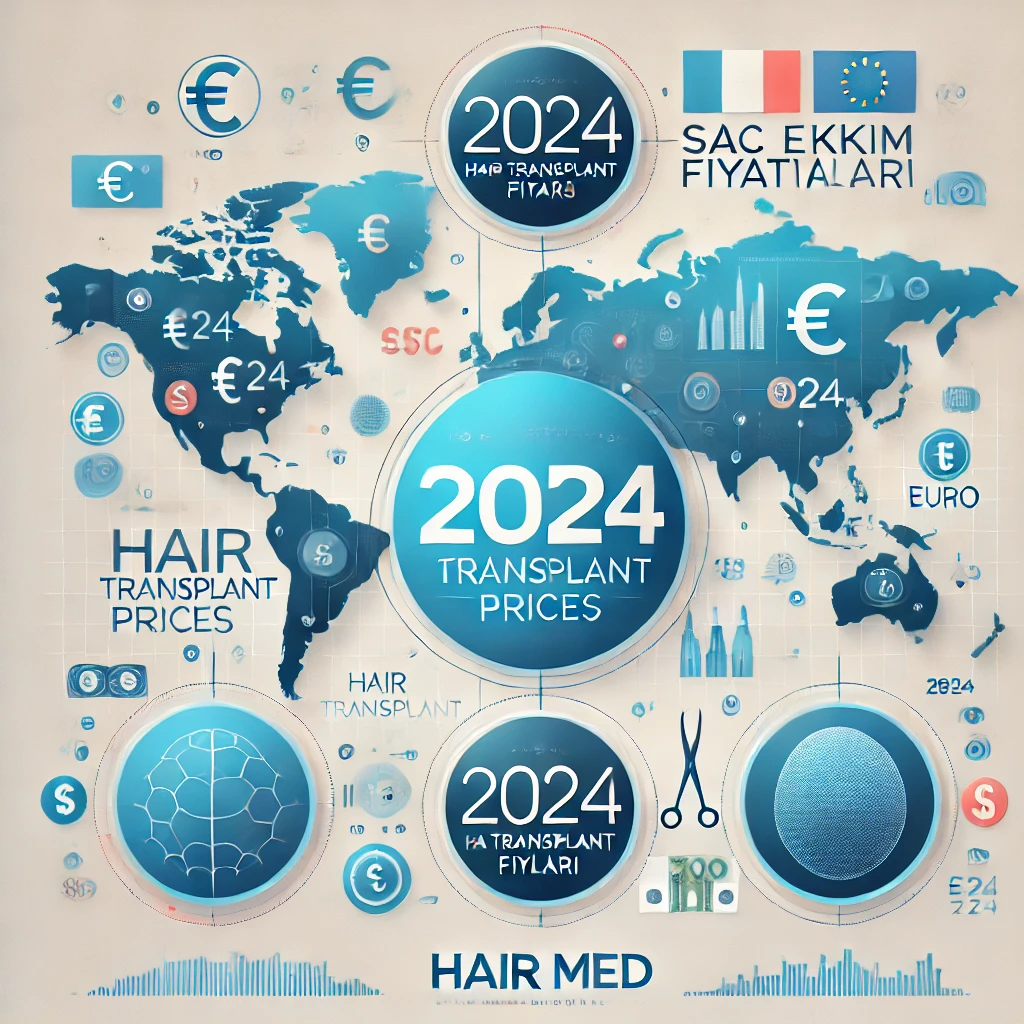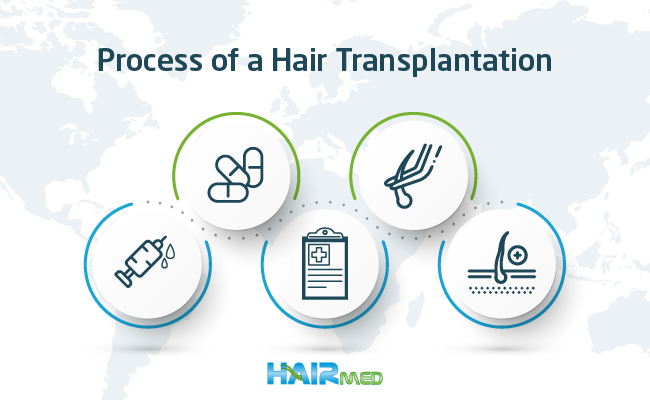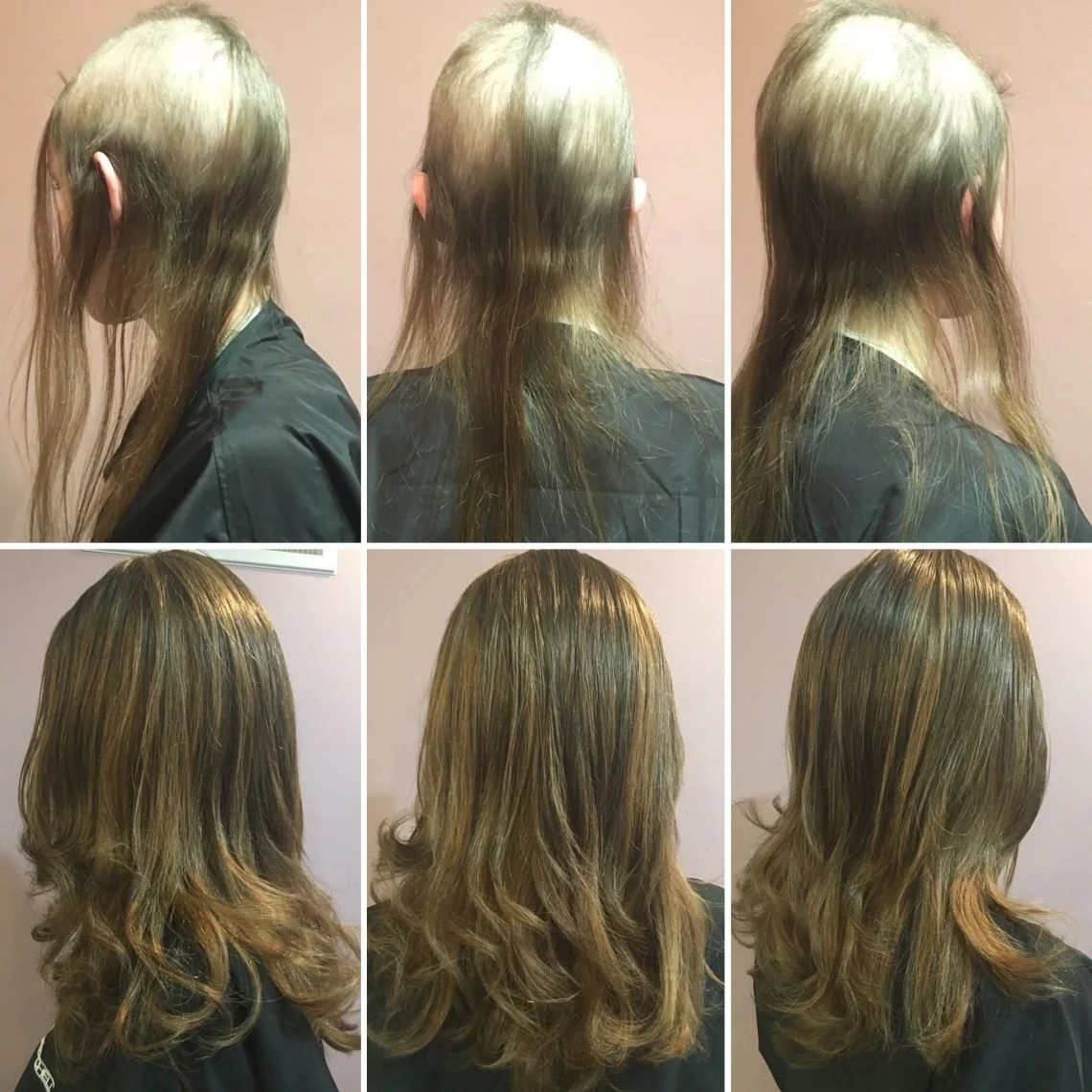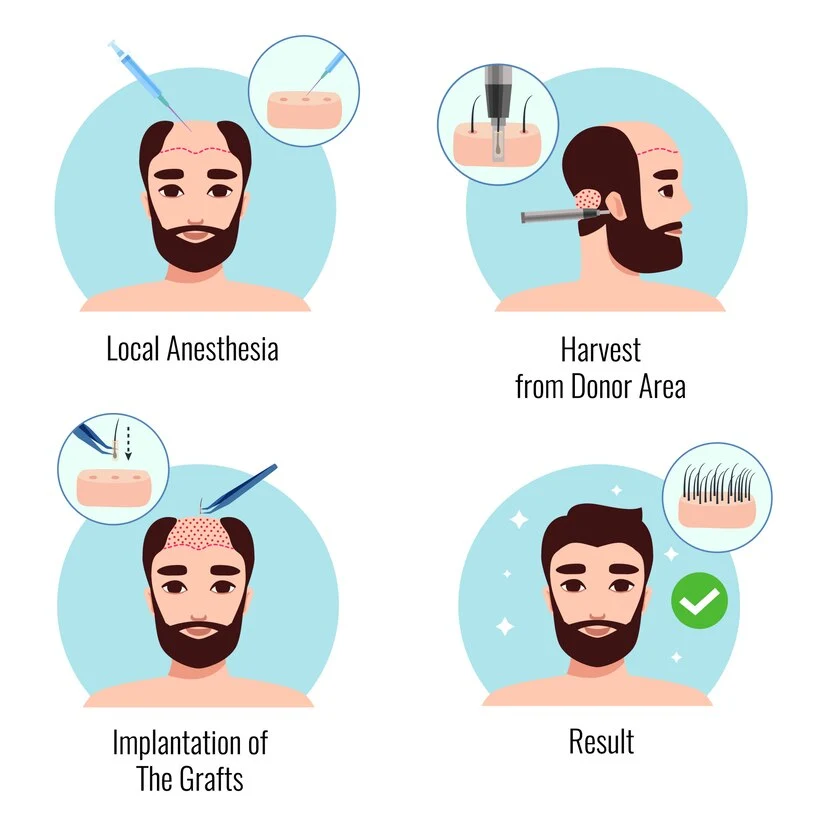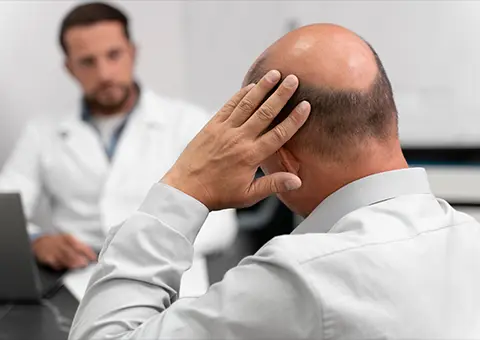After Hair Transplantation: Nutrition
How should the diet and nutrition be after transplantation?
Nutrition and diet after hair transplantation are crucial to accelerate the healing process, support healthy hair growth, and maintain overall health. A healthy diet and regular nutrition help combat fatigue, stress, infections, and other complications that may arise after a hair transplant.
What should I use or avoid after hair transplantation?
After a hair transplant, the body should intake sufficient protein, vitamins, and minerals to heal healthily and speed up hair growth. Here are the things to consider in your diet after a hair transplant:
- Protein: Hair is composed of a protein called keratin, and adequate protein intake supports healthy hair growth. Consuming protein-rich foods such as meat, fish, chicken, eggs, milk, and dairy products can expedite the recovery process after a hair transplant.
- Vitamins: After a hair transplant, the consumption of vitamins C, E, A, and B complex helps promote healthy hair growth. Foods like citrus fruits, dark leafy greens, carrots, sweet potatoes, nuts, and seeds contain these vitamins.
- Minerals: To support healthy hair growth, it’s essential to intake adequate amounts of minerals such as iron, zinc, magnesium, copper, and selenium. Red meat, nuts, whole grains, leafy greens, and seafood contain these minerals.
- Water: Adequate water intake helps maintain skin moisture and supports healthy hair growth. After a hair transplant, it’s essential to drink at least 2-3 liters of water.
- Sugar and processed foods: Sugary and processed foods can increase inflammation and slow down the healing process. Therefore, it’s recommended to avoid such foods as much as possible after a hair transplant.
- Alcohol and cigarettes: Consuming alcohol and cigarettes can negatively impact the healing process and hinder healthy hair growth. Hence, it’s advised to avoid such bad habits after a hair transplant.
A proper diet is highly essential after a hair transplant. During this period, one should consume the right foods to heal the body. In the recovery process, the intake of protein, vitamin, and mineral-rich foods is vital.
Protein is crucial for hair health since it forms the structure of hair strands. Therefore, consuming an adequate amount of protein is essential after a hair transplant. Chicken, fish, beef, milk, dairy products, eggs, lentils, chickpeas, beans, and other legumes are rich in protein.
Which vitamins and minerals should I take after a hair transplant?
Intake of vitamins and minerals is highly important after a hair transplant. Vitamin C is crucial for scalp health and naturally aids in the production of melanin in hair. At the same time, vitamin C increases collagen production in the body, accelerating the healing of the scalp and hair follicles. Foods like citrus fruits, kiwis, red bell peppers, broccoli, strawberries, and tomatoes contain vitamin C.
Biotin is a type of B vitamin required for healthy hair growth and also promotes hair strength. Foods like almonds, walnuts, hazelnuts, leafy greens, eggs, liver, and whole-grain foods contain biotin.
Iron is an essential mineral for hair health and plays a role in preventing hair loss. Iron-rich foods include spinach, Swiss chard, beef, eggs, and chickpeas.
Should I also take antioxidants after a hair transplant?
Additionally, consuming foods rich in antioxidants is important after a hair transplant. Antioxidants neutralize free radicals in the body and aid in the healing process. Foods rich in antioxidants include strawberries, raspberries, blackberries, red grapes, spinach, radishes, broccoli, and cauliflower.
Conclusion
Proper nutrition after a hair transplant can expedite the healing process and maintain hair health. However, it’s essential to consult with a professional before using dietary supplements.

